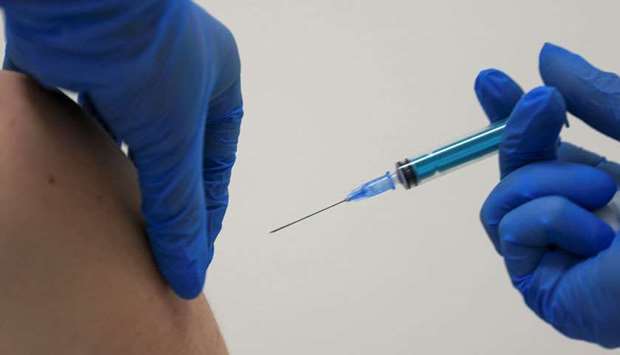The protection that vaccines give against coronavirus infection, and potentially severe disease, is highly likely to wane over time so vaccine campaigns will continue for years to come, scientists told the British government’s advisory group.
“It is highly likely that vaccine induced immunity to Sars-CoV-2 infection, and potentially severe disease (but probably to a lesser extent) will wane over time,” according to an executive summary of a document considered by the government’s Scientific Advisory Group for Emergencies (SAGE).
“It is therefore likely that there will be vaccination campaigns against Sars-CoV-2 for many years to come, but currently we do not know what will be the optimal required frequency for re-vaccination to protect the vulnerable from Covid disease,” the scientists said.
The document, titled ‘How long will vaccines continue to protect against Covid?’, was written by prominent virologists and epidemiologists from Imperial College London, University of Birmingham and Public Health England.
Britain has approved and is using three shots - Oxford-AstraZeneca, Pfizer-BioNTech and Moderna - in a mass vaccination programme that started in December 2020.
Real world data show that these vaccines protect with 95% or greater effectiveness against the Alpha variant that dominated in Britain in early 2021, the scientists said, although the ability of the shots to protect against infection and onward transmission was lower.
They said it might be expected that vaccine effectiveness would remain high for severe disease but effectiveness against mild disease and infection could fall off over time.
Anecdotal reports from Britain and Israel, which rolled out a comprehensive early campaign, supported that concept, they said.
Meanwhile, a weekly infection survey released yesterday, after the UK government relaxed virus curbs, showed coronavirus case numbers increased more than 15% across England in the most recent week measured.
The figures for the week ending last Saturday contrast with the health ministry’s daily testing data, which registered dramatically declining cases during much of last week.
The recorded halving in new daily cases, which has since gone into reverse, surprised officials and experts who had predicted the July 19 removal of remaining pandemic rules would prompt a surge in infections.
However, the latest survey by the Office for National Statistics (ONS) - which is seen as more reliable as it randomly samples the population - suggests cases may not have fallen and that daily testing failed to detect many new infections.
It showed cases in England rose by an estimated 114,500 or 15.4% to 856,200, with all but two of the country’s nine regions showing increases.
Meanwhile, cases also climbed in Wales and Northern Ireland, but dropped in Scotland.
All three devolved governments are easing their own virus restrictions at a slower pace than England. The discrepancy between the daily case numbers and the ONS survey could be explained by various factors, according to experts. They noted the start of school summer holidays earlier this month meant mass testing among pupils ended.
And millions of Britons getting told to self-isolate by contact tracers, after coming into contact with someone infected, may have altered behaviour, and led some to avoid getting tested.
The government is set to allow fully vaccinated adults to avoid 10 days of self-isolation if contacted by tracers from August 16. But for now, whole swathes of retail and industry are reporting staff shortages.

Vaccination
